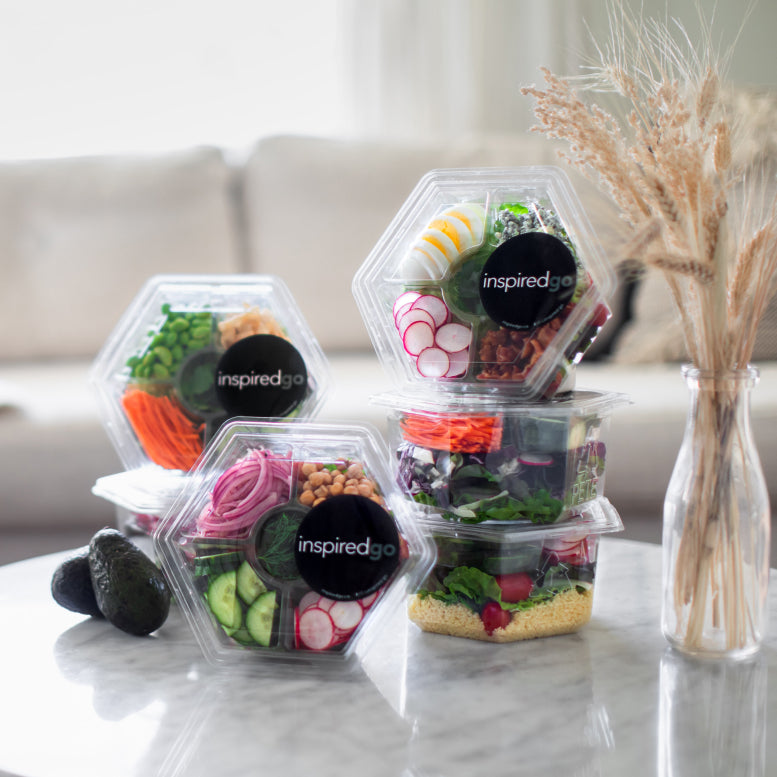What Is The Difference Between Vegan And Vegetarian?
Table of Contents
1. Distinguishing Between Vegan and Vegetarian Diets
2. Is a Vegan Diet Healthy?
3. How Can Vegan Meal Delivery Support Weight Management?
4. How Can I Eat Healthy Without Cooking?
1. Distinguishing Between Vegan and Vegetarian Diets
Understanding the distinction between vegan and vegetarian diets is crucial in selecting the right dietary choices for your lifestyle. Both diets focus on plant-based food intake, yet they differ significantly in terms of dietary restrictions. Vegetarianism typically refers to a diet that excludes meat, poultry, and seafood, but may still include animal-derived products like eggs, dairy, and honey. On the other hand, veganism is a stricter form of vegetarianism where all forms of animal-derived products are eliminated, including dairy, eggs, honey, and even certain types of food additives. This also extends to non-food items, such as clothing or products made from animal by-products. Both diets have been associated with numerous health benefits, including lower risk of heart disease, high blood pressure, and certain types of cancer. Choosing between a vegan or vegetarian diet largely depends on personal preferences, ethical beliefs, and specific health considerations.
Order fresh salads today →


2. Is a Vegan Diet Healthy?
A vegan diet, when properly planned, can be incredibly healthy and nutritionally balanced. Plant-based meals are rich in vitamins, minerals, antioxidants, and fiber, all of which contribute to improved digestion, reduced inflammation, and better overall health. Vegan diets are often lower in saturated fats and cholesterol, which supports heart health and reduces the risk of chronic diseases. However, a balanced vegan diet requires careful consideration of essential nutrients such as vitamin B12, iron, calcium, and omega-3 fatty acids. Vegan meal delivery services address these concerns by offering pre-portioned, nutrient-dense meals designed to cover daily dietary requirements. With expert chefs and dietitians crafting balanced menus, vegan meal delivery provides a reliable way to enjoy the benefits of plant-based eating without nutritional gaps.
Choose your salads and schedule delivery →
3. How Can Vegan Meal Delivery Support Weight Management?
Vegan meal delivery services play a significant role in supporting weight management goals through portion control and nutrient-dense ingredients. Plant-based meals are naturally high in fiber, which promotes satiety and prevents overeating. Proteins from tofu, chickpeas, and lentils offer sustained energy, while complex carbohydrates from grains provide long-lasting fullness. Vegan meal delivery services offer calorie-counted meals tailored to weight loss or maintenance goals, removing the need for tracking or guesswork. Additionally, avoiding overly processed vegan junk food ensures meals remain aligned with health objectives. By offering pre-measured, balanced meals, vegan meal delivery supports sustainable weight management while maintaining variety and satisfaction.
Get fresh salads and snacks delivered →
4. How Can I Eat Healthy Without Cooking?
Inspired Go eliminates the need for time-consuming meal prep and cooking while still delivering healthy, delicious vegan meals. With pre-prepared dishes crafted by expert chefs and dietitians, Inspired Go ensures every meal meets high nutritional standards without requiring any effort from the customer. Their ready-to-eat vegan meals are delivered fresh, packed with balanced ingredients, and portioned to support consistent nutrition. Customers can simply unpack, serve, and enjoy their meals without worrying about chopping vegetables, measuring portions, or cleaning up afterward. Inspired Go’s vegan meal delivery provides a seamless solution for busy individuals, professionals, or anyone seeking a healthier lifestyle without the time investment of traditional cooking. Eating healthy has never been more convenient, accessible, or enjoyable.
Try our fresh, ready-to-eat salads →
Frequently Asked Questions
The key difference between vegan and vegetarian diets lies in the exclusion of animal products. Vegetarians avoid meat, poultry, and fish but may consume animal-derived products like eggs, dairy, or honey. Vegans, on the other hand, exclude all animal products, focusing solely on plant-based foods. Veganism is often a lifestyle choice, avoiding animal products in all forms, including clothing and cosmetics.
A vegan diet consists entirely of plant-based foods, including fruits, vegetables, grains, nuts, seeds, and legumes. It excludes all animal-derived products, such as meat, fish, dairy, and eggs. This diet emphasizes nutrient-dense, whole foods, though processed vegan alternatives are available. A vegan diet, when well-balanced, supports good health and environmental sustainability, making it popular for ethical, health, and ecological reasons.
Not all vegan diets are gluten-free. While veganism excludes animal products, gluten is a protein found in wheat, barley, and rye, which are plant-based and commonly included in vegan meals. To maintain a vegan and gluten-free diet, focus on naturally gluten-free foods like fruits, vegetables, rice, quinoa, and gluten-free grains. Always check labels for hidden gluten in processed vegan foods.
On a vegan diet, you can enjoy a wide variety of plant-based foods, including fruits, vegetables, legumes, nuts, seeds, whole grains, and plant-based dairy alternatives. Popular vegan dishes include stir-fries, salads, grain bowls, soups, and curries. Incorporating fortified foods or supplements ensures you meet nutrient needs like B12, iron, and omega-3s, making the diet balanced and enjoyable.
A vegan diet can be very healthy when balanced and diverse. It’s rich in fiber, vitamins, and antioxidants, while being lower in saturated fat and cholesterol. These factors contribute to better heart health, weight management, and reduced risk of chronic diseases. However, careful planning is essential to ensure adequate intake of nutrients like vitamin B12, iron, and protein for overall health.

